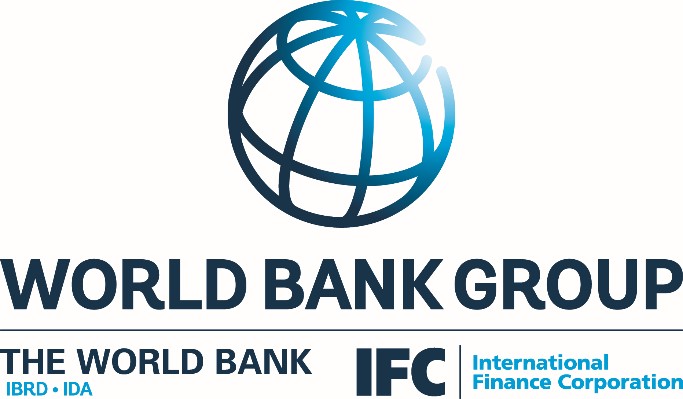
Amman, Jordan, November 16, 2021—By encouraging private investments and easing the constraints facing the business community, Jordan could reduce unemployment and break free from a half-decade of slow growth, says a new report from IFC and the World Bank.
The Jordan Country Private Sector Diagnostic suggests that bolstering private investments across the country – including in tourism, logistics, and information and communication technology – would support job creation, spur innovation, and help Jordan recover from the economic fallout of COVID-19. The report is part of a series of landmark studies from IFC and the World Bank.
"The release of this report coincides with the launch of the government's Priorities Program 2021 – 2023, a fast track program to stimulate private sector development and create jobs for Jordanian youth. The report is aligned with the government's program in assessing the challenges hindering Jordan's growth and offering a roadmap for reforms to unleash the potential of businesses, spur foreign investment, and highlight how the private sector can be a key engine of growth, propelling Jordan into the future," said Nasser Shraideh, Jordan's Minister of Planning and International Cooperation.
The report lauded Jordan for its remarkable ability to spur private investments in infrastructure, especially in renewable energy. For the past five years, the equivalent of about 2 percent of GDP has gone into infrastructure-related public-private partnerships annually.
But the report found that several factors are holding back the growth of Jordan's private sector at large. Those include expensive electricity, unevenly enforced competition laws, high shipping costs, and sometimes vague foreign investment regulations.
"With a skilled labor force, historic sites, and a burgeoning renewable energy industry, Jordan has the building blocks of a vibrant economy," said Hela Cheikhrouhou, IFC's regional Vice President for the Middle East, Central Asia, Turkey, Afghanistan, and Pakistan. "But, as the report indicates, to realize its promise, the country needs to spur competition, strengthen the business environment, increase the predictability of regulations, strengthen the digital economy, and further liberalize the foreign investment regime. This would foster a private sector capable of creating jobs and competing on the international stage."
The Jordan Private Sector Diagnostic makes specific recommendations, including:
- enforcing antitrust laws to stoke competition;
- limiting price controls, which distort the market for important services, like electricity;
- reducing red tape, making it easier for entrepreneurs to start and run a business;
- expanding childcare services, which would allow more women to enter the workforce;
- systematically consulting the private sector on major policy changes expected to affect businesses; and
- simplifying the rules around foreign investment, which today discourage many firms from entering Jordan.
"Jordan has made real progress in improving its business climate," said Abdullah Jefri, IFC's Country Manager for the Levant region. "But deeper reforms are needed to tackle long-standing issues and to bring about a green, resilient, and inclusive recovery from COVID-19."
The report argues that Jordan, with a combination of ancient attractions and balmy temperatures, has the potential to become a major tourism destination. Its technology sector, which includes a mix of homegrown startups and technology giants, like Microsoft and Amazon, is also primed for growth. The same holds true for the logistics industry, where a surplus of tech-savvy young people could help develop the connected transport and logistics systems of tomorrow.
"There's no doubt that the tourism, logistics, and information technology sectors are brimming with promise," said Saroj Kumar Jha, Mashreq Regional Director, World Bank Group. "In the years to come, the key will be to create a level playing field in these industries. That would allow innovative, well-run companies to succeed, which, in turn, would help create jobs and drive the growth Jordan so acutely needs."
The Jordan Country Private Sector Diagnostic was produced in consultation with businesses across Jordan, offering unique and rarely accounted perspectives of the private sector. It is a key part of IFC's efforts to combat poverty and create economic opportunities in Jordan.
In the last financial year, IFC invested more than $200 million in Jordan's private sector and provided a range of advisory services, helping to create jobs, support small businesses, improve healthcare, ensure uninterrupted supply of medicines, bolster power supplies, and level the economic playing field for women.
About IFC
IFC—a member of the World Bank Group—is the largest global development institution focused on the private sector in emerging markets. We work in more than 100 countries, using our capital, expertise, and influence to create markets and opportunities in developing countries. In fiscal year 2021, IFC committed a record $31.5 billion to private companies and financial institutions in developing countries, leveraging the power of the private sector to end extreme poverty and boost shared prosperity as economies grapple with the impacts of the COVID-19 pandemic. For more information, visit www.ifc.org.
About the Country Private Sector Diagnostic
Launched in 2017 as a corporate priority, the World Bank Group Country Private Sector Diagnostics support the institution's strategic focus on expanding private investment and leveraging private solutions to address development challenges in client countries. The diagnostics assess critical constraints to private sector engagement and identify policy and regulatory reforms needed to unleash private sector growth. They are jointly delivered by the World Bank and IFC. For more information, click here.
Stay Connected
www.facebook.com/IFCmena
www.twitter.com/IFC_menap
www.youtube.com/IFCvideocasts

Contacts
Stay Informed
Sign up to have customizable news & updates sent to you.